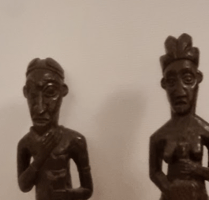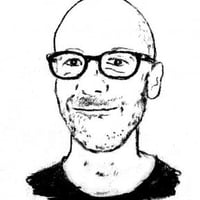For the past two weeks, we (Nicolas and the Sams) have been talking with biographers to better...
Rediscovering the Past: Marie’s Journey of Writing Her Life Story
When Marie set out six weeks ago to write a book about her childhood and teenage years in Cameroon during the 1950s, none of us could have anticipated the profound transformation this process would bring. As an observer and admirer of her work, I feel privileged to document her experience, which has become a fascinating exploration of memory, storytelling, and self-discovery.

Marie’s motivation has remained unwavering. In fact, it has energized her in unexpected ways—she has dived headfirst into her archives, pulling out old texts, school bulletins, newspaper clippings, and photos. These artifacts are not just supporting her narrative but are actively shaping it. As she confronts her memory with tangible evidence, a compelling interplay between fact and recollection emerges, breathing life into her story and invigorating her sense of purpose.
Setting the Scene: Writing for the Reader
Marie’s approach to storytelling is as thoughtful as it is immersive. From the outset, she decided to place her reader squarely in the middle of her world. Her writing style is direct, yet lively, combining detailed descriptions with sensory experiences.
Her narrative begins with a comprehensive portrait of Cameroon in the 1950s. She describes its geography, climate, and seasons with vivid detail, painting a picture of the humidity, the perpetual gray skies, the jungle, and the muddy roads of the rainy season that could cut off entire regions. Through her words, you can almost feel the heat, smell the dirt of the roads or hear the rain hammering down during the wet season.
But Marie doesn’t stop at descriptions—she layers her storytelling with personal observations, adding a touch of humor and humanity. For example, she reflects on how, back then, her family could only return to Europe once every two years. This perspective contrasts sharply with today’s world, where hopping across continents in less than a day feels routine. Her anecdotes not only immerse readers in a different time and place but also invite them to reflect on the pace and privilege of modern life.
Memory Meets Reality: A Journey of Reinterpretation
As Marie progresses with her story, something extraordinary is happening. The act of writing and researching has given her the opportunity to reevaluate her memories. She’s noticing inconsistencies between what she remembers and the facts documented in her archives. In response, she has started digging deeper, researching further, and—most remarkably—reinterpreting her past.
When I visited her recently, Marie spoke at length about what she described as an "enlightening experience." She explained how long-forgotten feelings have resurfaced, balanced now with a broader understanding of the context in which they occurred. In her words, “It’s as if these memories, long relegated to the realm of thought, are becoming real again.”
Not every memory has been pleasant, but Marie has found that the distance of time has softened the painful aspects. This process has brought her closer to the people she once knew—her family, friends, and acquaintances from that time. Though many of them have passed away, they feel momentarily present through the act of writing. It reminds me of something Lars Röper once said about reinterpreting past events: that it often leads to healing, and, surprisingly, joy.
The Path Forward: From Childhood to New Beginnings
Marie is following a clear plan for her book. After describing Cameroon in the 1950s, she’s weaving in her personal experiences: the main events, places, and people that shaped her life. She’s recounting anecdotes, like her father’s fondness for local animals, which led to an amusing collection of exotic pets. These charming stories are interspersed with reflections on people who were dear to her but later faded from her life.
Eventually, Marie plans to explore the events that led to her family’s return to France in 1960, a move that marked the end of one chapter and the beginning of another. She’ll describe how she made a new home among friends who, like her, had left former French territories such as Algeria.
Her storytelling is heartfelt and engaging, and her draft is a pleasure to read. I’m confident that Marie will complete her book, but the process is already a success in its own right. She’s rediscovering her past and sharing it with her family, who have rallied around her with unwavering support.
A Story Brought to Life: Multimedia Memories
Marie’s project is evolving in exciting ways. Recently, she mentioned a treasure trove of old Super8 films that her father had made, documenting moments of their life in Cameroon. These films were restored and digitized two decades ago, and now, with the context of her book, they feel more precious than ever. They offer a visual accompaniment to her words, connecting the past and present in a tangible, poignant way.
A Social Experiment in Storytelling
Marie’s experience highlights the transformative power of personal storytelling. It’s not just about writing a book—it’s about confronting memories, reevaluating interpretations, and sharing a piece of yourself with others. What makes this journey so remarkable is not only Marie’s talent as a storyteller but also the support she’s receiving from her family and friends.
As I watch Marie work with such passion and determination, I can’t help but feel inspired. Her journey reminds us of the value of preserving our personal histories and the incredible connections that can emerge when we take the time to share them.
Marie’s book isn’t finished yet, but I, for one, can’t wait to read it. And perhaps, by following her story, you’ll feel inspired to start your own. After all, as Marie shows us, it’s never too late to bring your past to life.




